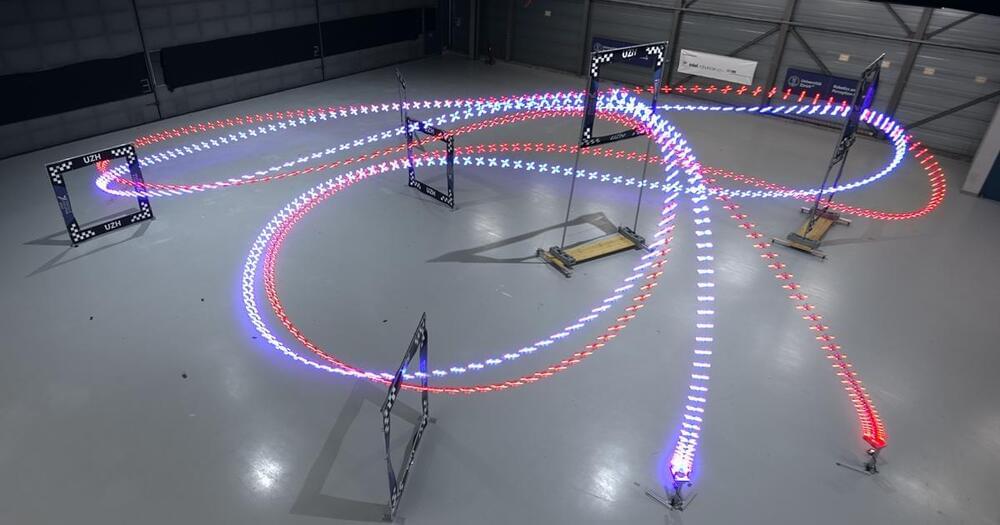In what can only bode poorly for our species’ survival during the inevitable robot uprisings, an AI system has once again outperformed the people who trained it. This time, researchers at the University of Zurich in partnership with Intel, pitted their “Swift” AI piloting system against a trio of world champion drone racers — none of whom could best its top time.
Swift is the culmination of years of AI and machine learning research by the University of Zurich. In 2021, the team set an earlier iteration of the flight control algorithm that used a series of external cameras to validate its position in space in real-time, against amateur human pilots, all of whom were easily overmatched in every lap of every race during the test. That result was a milestone in its own right as, previously, self-guided drones relied on simplified physics models to continually calculate their optimum trajectory, which severely lowered their top speed.
This week’s result is another milestone, not just because the AI bested people whose job is to fly drones fast, but because it did so without the cumbersome external camera arrays= of its predecessor. The Swift system “reacts in real time to the data collected by an onboard camera, like the one used by human racers,” an UZH Zurich release reads. It uses an integrated inertial measurement unit to track acceleration and speed while an onboard neural network localizes its position in space using data from the front-facing cameras. All of that data is fed into a central control unit — itself a deep neural network — which crunches through the numbers and devises a shortest/fastest path around the track.
